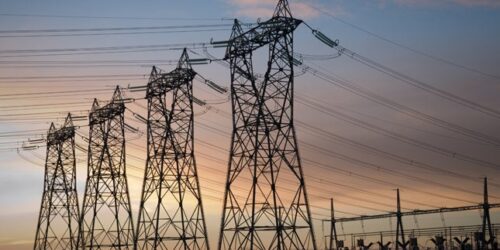Amid heating up of political climate, the government on Monday approved Rs10 billion supplementary grants for Sustainable Development Goals Achievement Programme (SAP) for utilisation on the recommendations of ruling party parliamentarians.
A formal decision to this effect was taken by the Economic Coordination Committee (ECC) of the Cabinet, which also approved about Rs182bn worth of six other supplementary grants, including Rs135bn to independent power producers (IPPs).
The government has already fully exhausted Rs46bn allocated in the federal budget 2021-22 that had been placed at the disposal of the Cabinet Division. It is rare for any development sector or ministry or division to get authorisation for consuming the entire annual allocation in the first quarter of any fiscal year.
Under the disbursement mechanism notified by the Planning Division, funds under all other heads are spent at the rate of 20pc in the first quarter, 30pc each in the second and third quarters and the remaining 20pc in the fourth quarter of a year. However, the Rs46bn allocation for SAP for 2021-22 has already been disbursed in the first three months of the fiscal year.
Informed sources said the government decided to give another supplementary grant of Rs10bn to SAP on an urgent basis given recent challenges in passage of a few government bills from the parliament and maintenance of quorum in the National Assembly for more than a week.
An official statement said the ECC considered and approved the Rs10bn Technical Supplementary Grants (TSGs) under the SAP.
An official claimed that a block allocation of Rs22bn had been made in the budget in the PSDP in a separate head “SDGs Supplementary Funds” which have now been approved as TSG. These funds are now available for utilisation in various constituencies of estranged lawmakers.
The ECC meeting, presided over by Minister for Economic Affairs Omar Ayub Khan, also directed the Public Procurement Regulatory Authority (PPRA) to relax rules for the Trading Corporation of Pakistan (TCP) to facilitate import of 100,000 tonnes of urea fertiliser at acceptable rates for the current rabi crop. All the ECC decisions were earlier cleared by its technical committee, led by Finance and Revenue Adviser Shaukat Tarin.
The ECC allowed relaxation of PPRA rules for import of urea by the TCP due to emergency for publishing a second tender advertisement, enabling the corporation to republish the tender till fetching of a low price during the rabi season.
The meeting approved another supplementary grant of Rs134.783bn for payment to 35 IPPs on second instalment of 60pc as per payment mechanism agreed upon with IPPs under tariff renegotiation process. These IPPs were given Rs90bn in May as the first instalment of 40pc.
The meeting discussed a summary presented by the Ministry of Industries and Production on Small and Medium Enterprises (SMEs) Policy 2021-25. The framework is based on reforming the policy and regulatory environment and addressing SME market constraints, both demand and supply side.
The ECC directed to further incorporate the rules of Small and Medium Enterprise Development Authority in providing enabling environment for SMEs. It was further decided that the industries minister, the finance adviser and the SBP governor would further consult amongst themselves for finalising the financing of SMEs.
The meeting also approved Rs338 million supplementary grant to National Rahmatul-Lil-Aalameen Authority (NRA) and Rs5.85bn to the Housing and Works division to execute development schemes in Sindh and Balochistan under SAP. The meeting approved Rs1.08bn from PSDP to the Interior Division for release to ICT Administration. A major supplementary grant of Rs35bn was approved as rupee cover against $200m out of $500m committed by the Asian Development Bank for procurement of Covid vaccine and ancillary goods and services.
The ECC also approved Rs4.785bn for the Election Commission of Pakistan for conduct of local government elections in all provinces and for periodical revision of electoral rolls.





